Description
A barometric damper serves several important functions in ventilation and exhaust systems. Here’s what it does:
1.. **Pressure Regulation**: The primary role of a barometric damper is to maintain balanced pressure within a duct system. It automatically adjusts to changes in pressure, ensuring that the system operates efficiently.
- **Preventing Backdrafts**: By allowing excess air to escape when pressure builds up, a barometric damper helps prevent backdrafts. This is crucial in systems like chimney vents or exhaust fans, where backflow of air could lead to safety hazards or contamination.
- **Controlling Airflow**: The damper opens in response to increased pressure, allowing air to flow out of the system. This helps maintain the desired airflow rates and prevents the buildup of pressure that could affect system performance.
- **Enhancing Efficiency**: By optimizing airflow and pressure conditions, barometric dampers contribute to the overall efficiency of HVAC systems. They help reduce energy consumption by ensuring that the system doesn’t have to work harder than necessary to maintain proper ventilation.
- **Safety Management**: In exhaust applications, barometric dampers play a critical role in safely venting harmful gases or fumes outside. They ensure that these gases do not re-enter the living or working environment, thus protecting occupants’ health.
- **Automatic Operation**: Barometric dampers operate automatically without requiring manual adjustments, making them convenient and effective for continuous pressure management.
In summary, a barometric damper is essential for regulating pressure, preventing backdrafts, controlling airflow, enhancing energy efficiency, and ensuring safety in various ventilation and exhaust systems.
FRAME: 6063T5 EXTRUDED ALUMINUM MINIMUM WALL THICKNESS 16 GA.
BLADES: 6063T5 EXTRUDED ALUMINUM 16 GA. COUNTERWEIGHT PLACED ON THE BACK OF MIDDLE
BLADE
SEALS: VINYL BLADE BEARINGS SUPER TOUGH NYLON
AXLES: STAINLESS STEEL
LINKAGE: 16 GA X 3/4″ WIDE STAINLESS STEEL CONCEALED IN THE CHANNEL FRAME CONNECTING ALL BLADES
FINISH: MILL FINISH
SINGLE SECTION SIZES: MAXIMUM 60″W X 60″H MINIMUM 6”W X 6″H

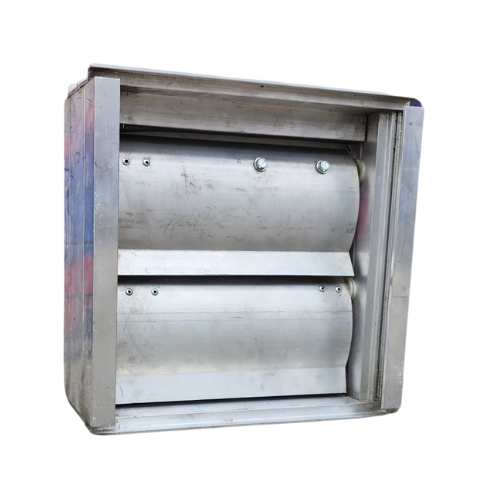




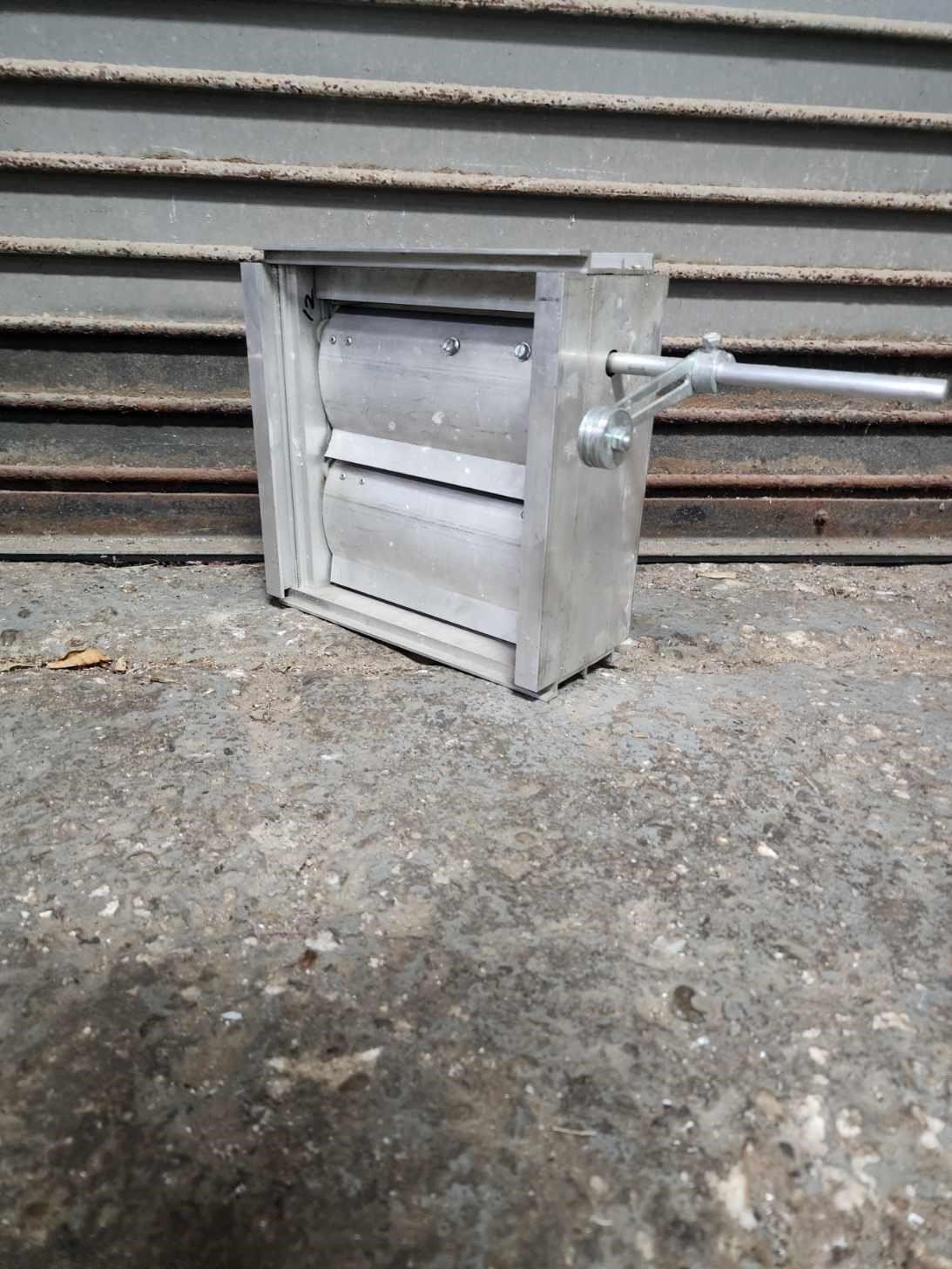
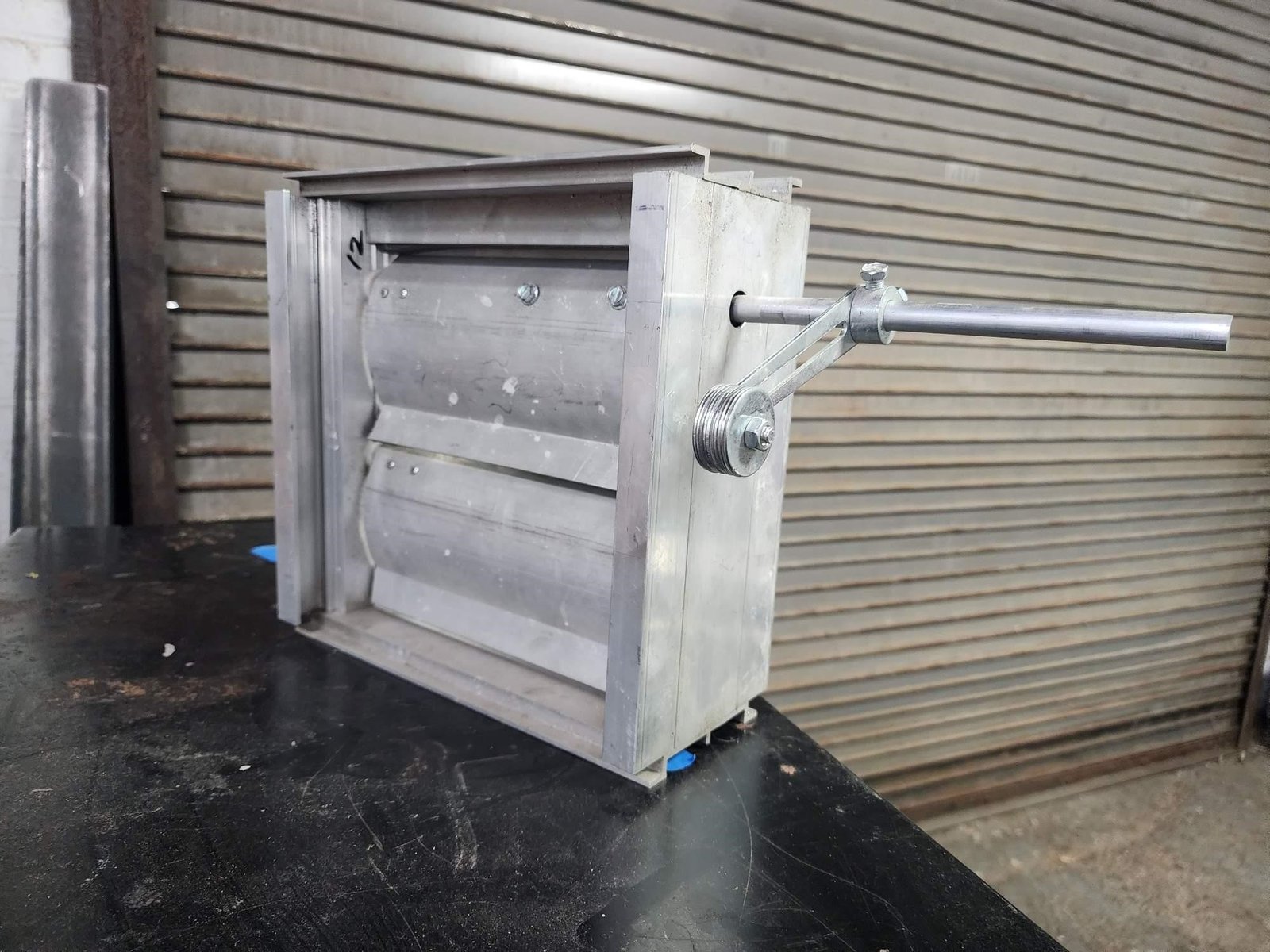

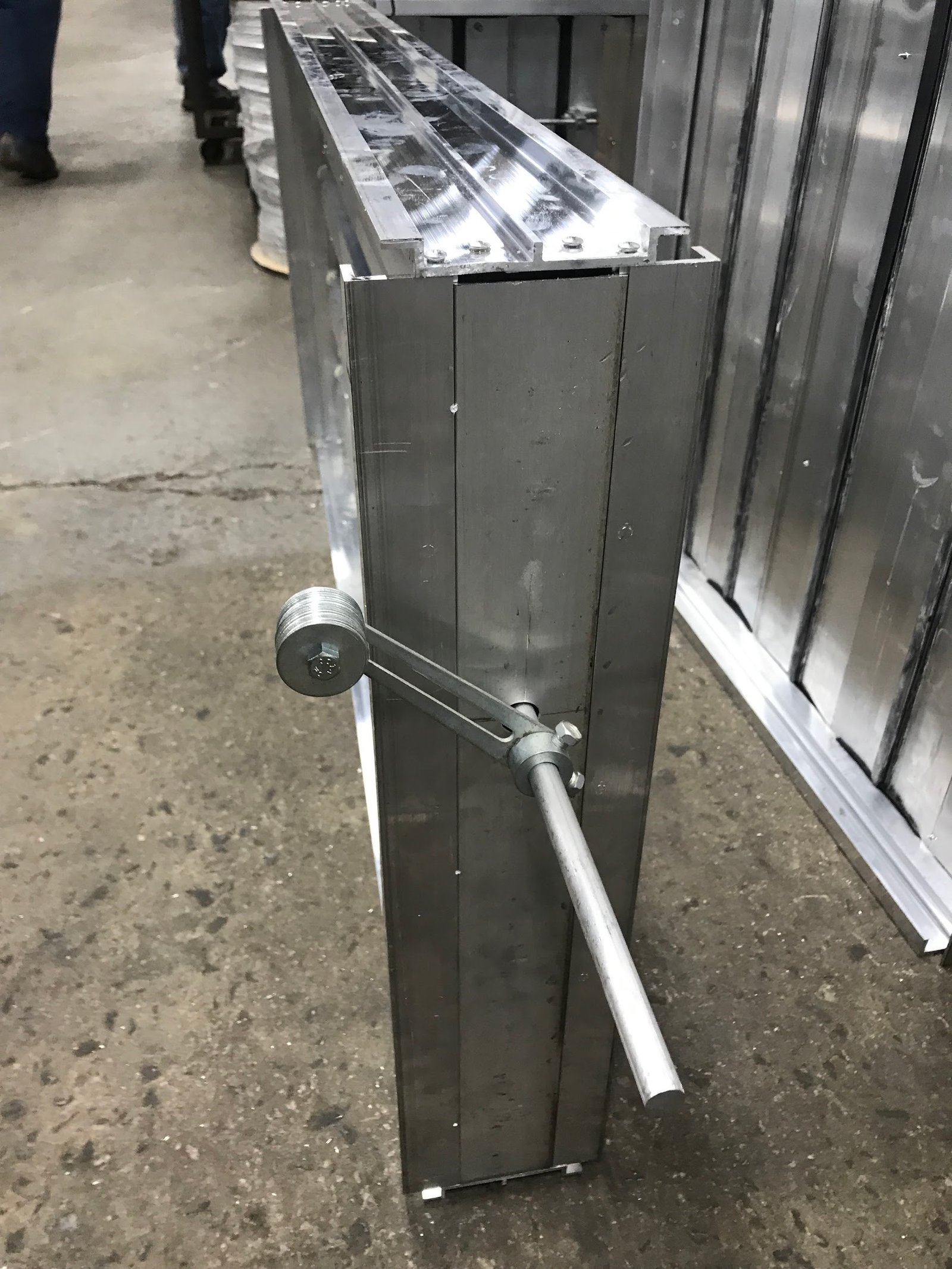

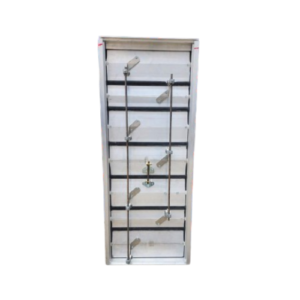

Reviews
There are no reviews yet.